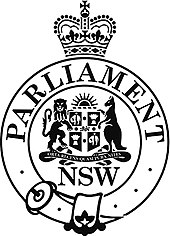Today’s release of the Report on the Joint Select Committee on Sydney’s night time economy tables important findings and recommendations from this year’s review to reinvigorate the Sydney city nightlife and economy.
From today’s report, findings include:
- That the 2014 laws had support within some sections of the community and have contributed to the reduction in violence but have also adversely impacted upon Sydney’s night time economy and activity.
- As a result of the 2014 laws, Sydney has an under-performing night time economy. Deloittes estimates that Sydney is foregoing $16 billion a year.
Recommendations for late night trading include:
- That the 2014 laws be removed in the Sydney CBD and Oxford Street to facilitate increased patronage at a diverse range of venues to enhance Sydney’s night time economy.
- That the following aspects of the suite of measures known as the 2014 laws be removed at licensed venues in the Sydney CBD precinct including Oxford Street, with appropriate urgency:
– 1.30am lockout
– prohibition on service of certain drinks after midnight, including: shots, drinks containing more than 50% spirits or liqueur, ready to drink beverages with an alcohol by volume content of more than 5%
– cocktails and drinks prepared on premises containing 30 ml or more of spirits or liqueur
– restriction of glass in the late trading period, and
– the 3.00am cessation of service. - That the mandated hours of operation of ID scanners in the Kings Cross precinct be reduced to require operation from 10pm on Friday and Saturday nights only.
- If the Sydney Lock-out reforms are successful, the NSW Government should give consideration to a review of Newcastle liquor licensing conditions and working with Newcastle City Council to rejuvenate the night-time economy and its economic importance for the Hunter Valley.
Many of the associated music and night time economy recommendations also endorse the findings of the previous 2016 Night time Economy Roundtable in 2016 and last years music and arts economy inquiry. These include:
- That the NSW Government appoint an overarching coordinator to bring together all relevant stakeholders to enhance Sydney’s night time economy. This should be done by a central agency of government under the direction of a minister.
- Convene a working group of stakeholders.
- Department of Planning, Industry and the Environment develop an integrated application process for liquor licencing and development applications that removes duplication in processes.
- That the NSW Government consider developing regulations to permit unused government buildings to be used as creative art spaces.
- That the NSW Government amend liquor legislation to remove unnecessary conditions for liquor licences and development applications that place unnecessary restrictions on live music, such as banning certain genres of music or certain musical instruments (16).
- That the relevant minister relax some of the restrictions on businesses operating in the night time economy. A single point of contact, such as the Small Business Commissioner, should be established for businesses to discuss ongoing concerns with Government and identify the most appropriate restrictions to be repealed or consolidated.
- That the NSW Government allocate funding to promote Sydney’s night-time economy to both a domestic and international audience.
- That the NSW Government investigate ways to support venues to provide entertainment. This should include making it easier for existing venues to do so, by encouraging new small and medium size music and entertainment venues, and the use of empty or under-utilised government spaces as temporary or opt-up arts and entertainment venues.
In another important recommendation for the music industry, the committee recommends that the relevant minister encourage all councils to adopt the Inner West Council’s Live Music Venues Good Neighbour Policy, and expand it to cover other venues, to ensure that complainants and businesses are mandated to meet with each other first, to try to resolve disputes collaboratively, before a council will act upon any complaint or dispute.
In response to recommendation 9,
- That the Department of Planning, Industry and Environment investigate:
– adopting an agent of change principle into planning law to protect existing venues.
– adopting provisions to allow the designation of entertainment precincts that may encourage new venues.
With evidence provided to the inquiry by the City of Sydney referencing APRA AMCOS data that identifies a 50% drop in primary purpose live music venues since 2014 from 22 to 11 venues in 2018, and understanding, of course, that a component of those remaining are leased and not owned, we once again express our fears for the long term sustainability of the live music industry in greater Sydney, having lost so many venues and with those remaining potentially vulnerable to property value transition.
It is the view of the Live Music Office that Sydney and NSW evolve to a hybrid planning instrument to respond to a range of night economy land use which might be referred to as:
- Venue Overlay;
- Night Time Economy Overlay/Area; or
- Entertainment Overlay/Area
With the development of an ‘overlay/area’ Sydney can then incorporate a coordinated hybrid response required to achieve the desired outcomes, once the principle has been established, also including residential design standards, venue operation, zoning and licensing.
These could also include:
- Order of Occupancy (NSW Liquor Act 2007)
- S.109 certificates (Wollongong, 2014)
- Special Entertainment Precincts (Brisbane 2006)
- Agent of Change for existing venues.
In our view, this would also be supported by the associated recommendation from last year’s music and arts economy inquiry.
The Live Music Office welcomes these findings and supports the recommendations. We also thank the committee and parliamentary staff for their great work through this process.
